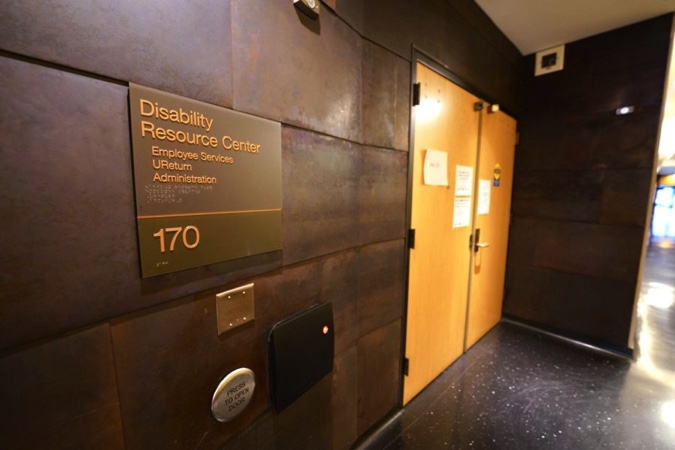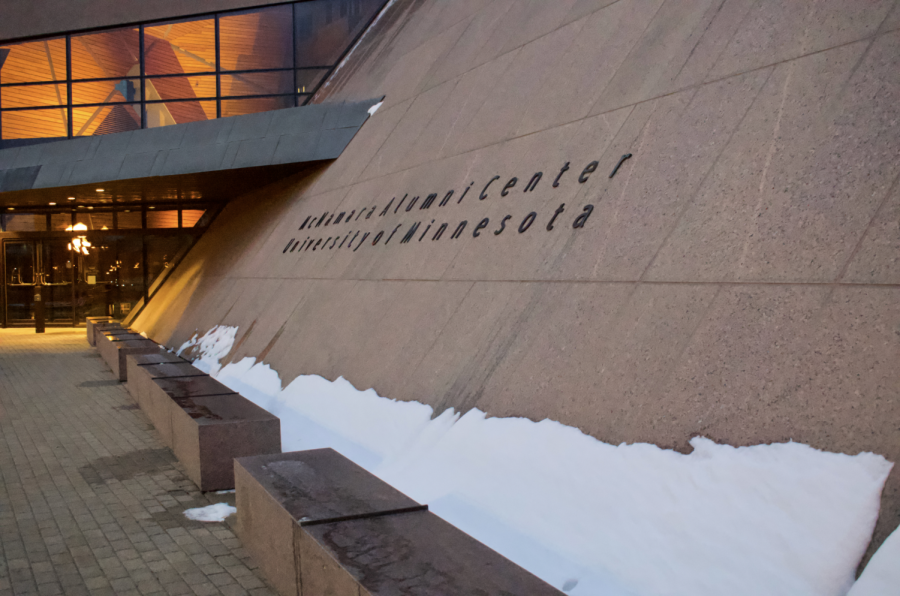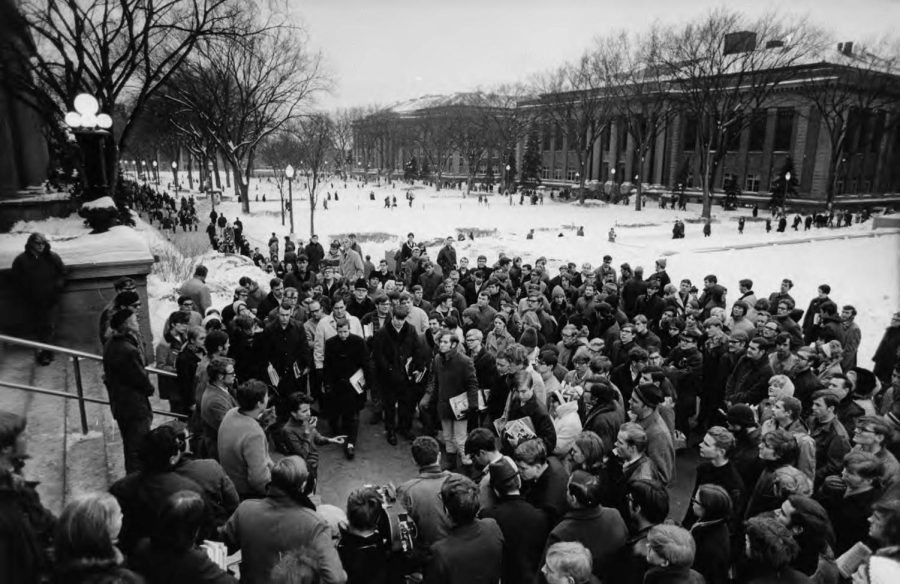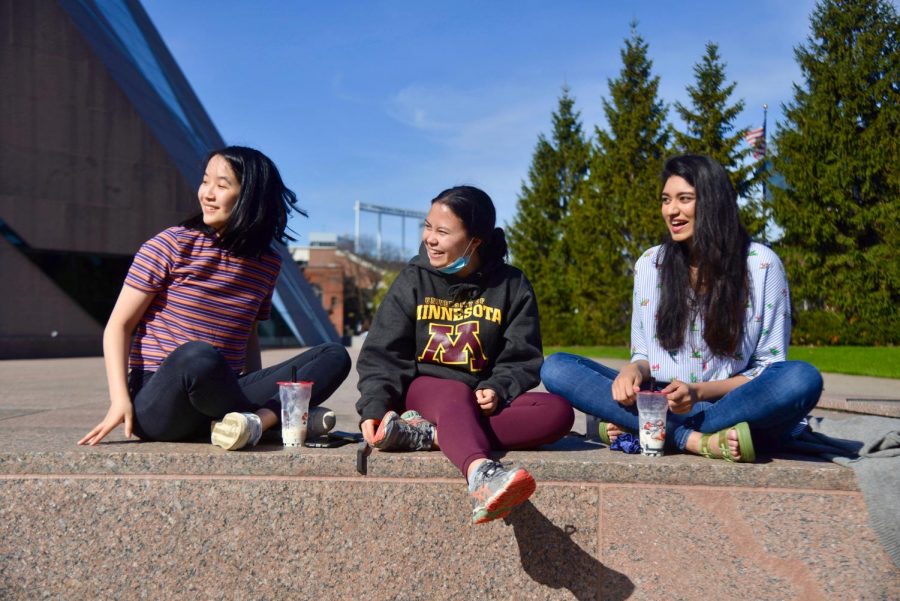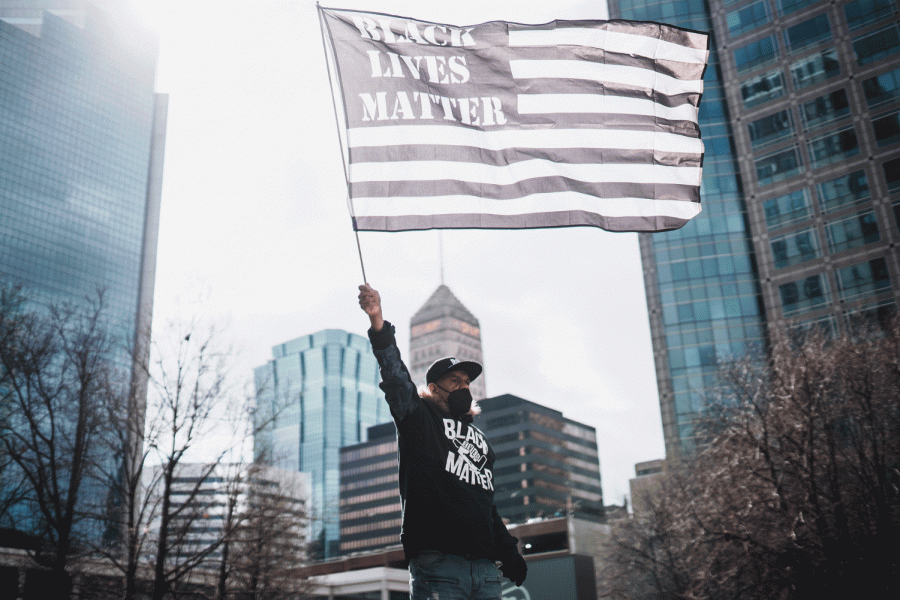Mahdi Ahmadi dreams of going home.
At night, his subconscious takes him back to Iran, where his parents and sister live. He hasn’t seen them since Jan. 11, 2011, a date he remembers and recites with ease. The recurring dreams are “compensation” for being without them for six years, he said.
Ahmadi, an Iranian citizen and doctoral student at the University of Minnesota, was planning a trip home for next year. His father and mother are both sick, and he said he would have a hard time forgiving himself if he didn’t make the journey to see them.
But President Donald Trump’s executive order limiting U.S. entry for some foreign nationals has left Ahmadi and other members of the University community unsure of when it will be safe to leave and return to the U.S.
The executive order bars entry to the United States for citizens Iran, Iraq, Sudan, Yemen, Libya and Somalia for 90 days. Nationals from Syria are barred indefinitely, and refugee entry from any country is suspended for 120 days. All of the countries are Muslim-majority.
Almost immediately, chaos ensued at airports across the country as citizens from impacted nations flying to the U.S. were detained. The order prompted protests nationwide and sent many University students, staff and faculty reeling.
A little over 100 University students called one of the affected countries home in 2013, according to available enrollment data, and many more have family in those countries. Some students say they no longer feel wanted here. They worry about the sudden instability introduced into their lives. Many are considering finding positions in Canada or Europe.
Saeed Hashemi, a doctoral student from Iran, said even though there are better jobs in the U.S. than other parts of the world, he’s not sure he’ll stay here after finishing his degree.
“I [would] prefer starting over in another country that feels more comfortable and more welcoming,” he said.
‘Protecting the nation’
President Trump’s order — titled, ‘Protecting the Nation from Foreign Terrorist Entry into the United States’ — states that one of its intents is to allow time for relevant federal agencies to reassess the visa issuance process. The order says the process “plays a crucial role in detecting individuals with terrorist ties and stopping them from entering the United States.”
Diplomats and people with specific international organization visas are excluded from the ban. Student visas, which most international students have, fall under the order, said Linda P. Aaker, an attorney with University Student Legal Services. Some other students have green cards, she said, but the impact on those permanent U.S. residents is still unclear.
This executive order has introduced an unprecedented feeling of uncertainty into the legal system, Aaker said.
“There’s a reason there’s a lot of regulations and detail in immigration law. It’s because it has to be well-tuned to meet diverse needs, and there’s a lot of legal history behind each and every component there that [Trump] washed out in a week,” she said.
International students from the affected countries — and even some from outside those nations — have been calling SLS in a panic, wondering what the Trump administration might do next, Aaker said.
“It’s extremely hard, and when clients ask me, I have to say I don’t know what’s going to happen,” she said.
Nationwide opposition to the executive order was swift. Protesters organized at airports, including Minneapolis-St. Paul International Airport, where many attorneys offered pro bono assistance to impacted travelers.
Nearly 1,000 people gathered at an event hosted by Rep. Ilhan Omar, DFL-Minneapolis, to discuss the policy Sunday night. About 5,000 assembled in downtown Minneapolis Tuesday to condemn the immigration ban.
As of Wednesday, about 220 faculty members from the University system had signed a national online petition called “Academics Against Immigration Executive Order.”
Affected students say the outpouring of support from their communities gives them hope in an otherwise bleak situation.
Mohsen — a recent University graduate from Iran who asked to be referred by his first name only — said the demonstrations in support of immigrants have moved him to tears. It’s encouraging to see that not everybody supports Trump’s policies, he said.
Saeed Hashemi called these responses “heartwarming.” They help him feel less alone, he said.
‘What did I do to deserve this?’
After accepting a spot in the University’s mechanical engineering doctoral program, Morteza Taherinejad spent months getting a U.S. visa, found a house in the Southeast Como neighborhood, quit his teaching job at an Iranian university and said goodbye to his family.
On Jan. 28, at Schiphol Amsterdam Airport, Taherinejad was checking in for his connecting flight to Minneapolis when an airport officer said he couldn’t board the plane.
Taherinejad spent three “terrible” days at the airport, he said. After being told by University and government officials that there was nothing they could do to help him, he returned to Iran on Tuesday without a plan for his future.
Taherinejad said he can’t understand why this immigration ban was put in place. It’s not fair, he said — he and his fellow Iranians aren’t terrorists. Many students and staff said they have the same questions and wonder what they’ve done to deserve what they see as punishment from the government.
For others, there are financial implications as well. An Iranian medical researcher at the University — who asked to remain anonymous — had booked a trip to Iran in March to see her parents for first time in two years. Her $900 plane ticket won’t be refunded.
“All of us have lost hope to see our family,” she said. “What did I do to deserve this?”
Mahdi Ahmadi empathizes with Americans who feel these policies are necessary because of their anxieties about the economy and national security, he said, but he said immigrants aren’t to blame for these concerns.
“I understand there is a feeling of insecurity, but it’s very harmful if you don’t diagnose it right,” he said.
The executive order is another blow in what feels like a constant stream of aggressions against the Muslim community, said Amera Hassan, public relations officer for the University Al-Madinah Cultural Center.
“We’ve become desensitized because there is just so often all this rhetoric against us,” she said. “There is only so much fighting you can do before you feel drained.”
As a result of the order, more people are starting to acknowledge the hostilities aimed at Muslim people, said Amira Gadow, a Somali student and public relations intern for the Somali Student Association.
Still, this is a new level of hurt, Gadow said. Her grandmother and older brother live in Somalia, and her family is concerned that they may not be able to visit them again.
“I’m lucky to be in America, but if this happened 20 years ago, I wouldn’t be here. It just pains me to realize there’s people who won’t get the opportunities that I’ve got,” she said.
A shattered image
While the ban doesn’t impact a large portion of University applicants, it may have broader implications for international recruitment, said Aimee Thostenson, director of international recruitment for University International Student and Scholar Services.
“In a public relations sense, the U.S. is seen as a less welcoming destination for international students to come and study here,” she said.
It’s too soon to tell how the ban will impact enrollment this fall, but if it does have an impact, it will likely be negative, Thostenson said.
She said she hopes the University’s high academic ranking will offset some of the negativity. Others say the damage has already been done.
A Ph.D. student from Iran — who requested anonymity — said she and her boyfriend will likely leave the country once she finishes her degree.
“I’ve been a very good citizen here. I’ve paid my taxes. I’ve worked hard,” she said. “Why wouldn’t you want somebody like me? I feel like that’s your loss … I’m going to be a good citizen anywhere I go.”
Like many of his colleagues, Saeed Hashemi said he is thinking about looking for a job outside the U.S.
“I don’t feel good about the country anymore,” Hashemi said. “Right now, I cannot feel welcome here.”
Mina Kian, a second-year University student whose family is from Iran, said simply lifting the ban wouldn’t be enough to repair the rifts it’s caused.
“[Many immigrants] came here because America gave the promise of possibilities, of freedom. Those are ideals I think immigrants value, but suddenly ‘the land of the free’ has become this complete lie,” she said.
Though it will be difficult to repair the image of the U.S., Ahmadi said he still has hope for democracy in America.
This situation has made him think of Howard C. Baskerville, he said, an American who fought for Iranian democracy in the early 20th century.
“This is the famous quote: ‘The only difference between me and these people is my place of birth, and this is not a big difference,’” Ahmadi said, pausing. “I just hope someday this gap between the cultures and the countries will be filled in.”
David Clarey and Samir Ferdowsi contributed reporting.










